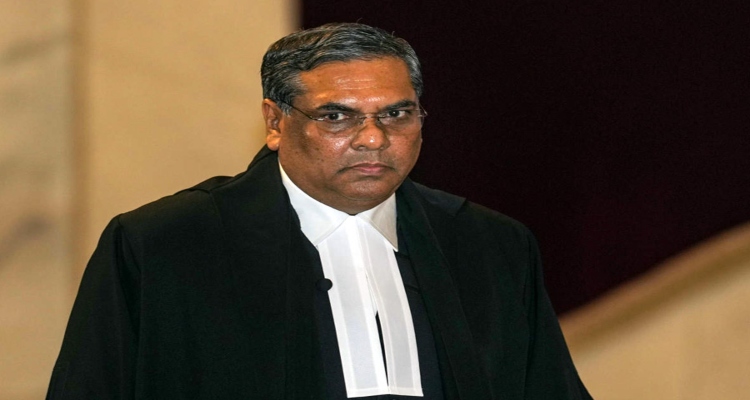
Chief Justice of India Sanjiv Khanna announced on Tuesday that judges across courts have been instructed to permit virtual hearings wherever feasible, given the alarming pollution levels in Delhi and the National Capital Region.
The announcement came during a session of the Supreme Court bench led by the CJI and Justice Sanjay Kumar, after lawyers highlighted the worsening air quality.
“Pollution is getting out of control,” remarked Supreme Court Bar Association president Kapil Sibal, emphasizing the urgency for immediate action. Solicitor General Tushar Mehta and senior advocate Gopal Sankaranarayanan supported his concerns.
Sibal also suggested that other courts across the country adopt virtual hearings as a precautionary measure.
In response, the CJI assured the gathering, stating, “We have told all the judges to allow virtual hearings wherever possible.”
He further emphasized, “We have given the message to accommodate everybody. Moreover, online is anyway available.”
The conversation follows a directive issued by the Supreme Court on Monday, taking note of the Air Quality Index (AQI) breaching the ‘severe plus’ category. The bench instructed Delhi and NCR states to immediately deploy teams to enforce restrictions under the Graded Response Action Plan (GRAP) 4.
These curbs will remain in place until further orders.
The severity of Delhi’s air pollution is evident, with the AQI recorded at a staggering 484 on Monday morning, the highest of the season. In some areas, the AQI even crossed the 500 mark, signifying hazardous levels.
The push for virtual hearings is seen as a practical step to reduce the need for travel and in-person gatherings, which could further aggravate the health impact of the toxic air. Legal professionals, including the solicitor general, stressed the need for the judiciary to lead by example in adopting such measures.
With pollution levels showing no immediate signs of improvement, the judiciary’s decision reflects a proactive approach to safeguarding public health while ensuring judicial processes remain uninterrupted.
The Supreme Court’s initiative sends a strong message to other courts to follow suit in tackling the crisis.




